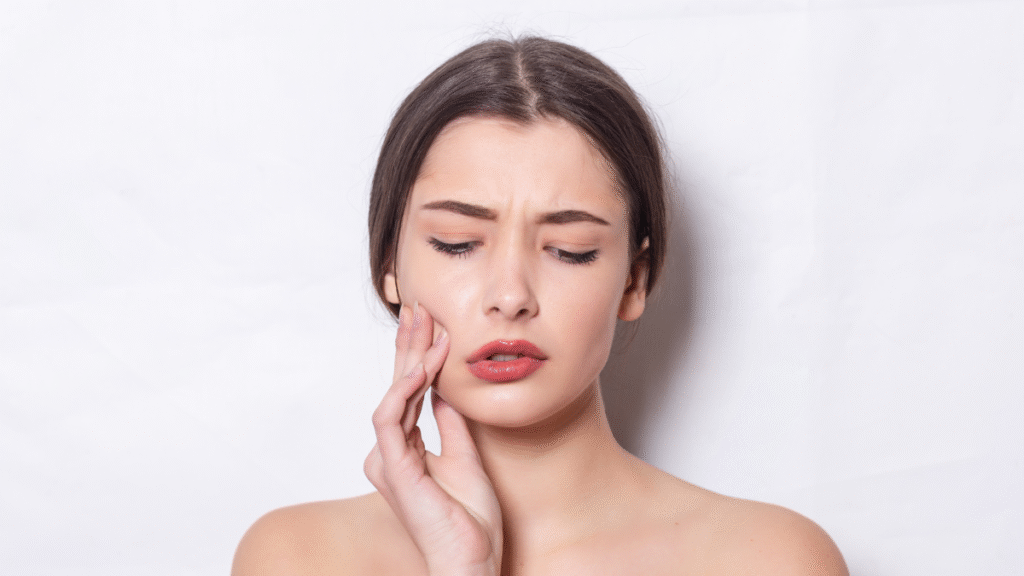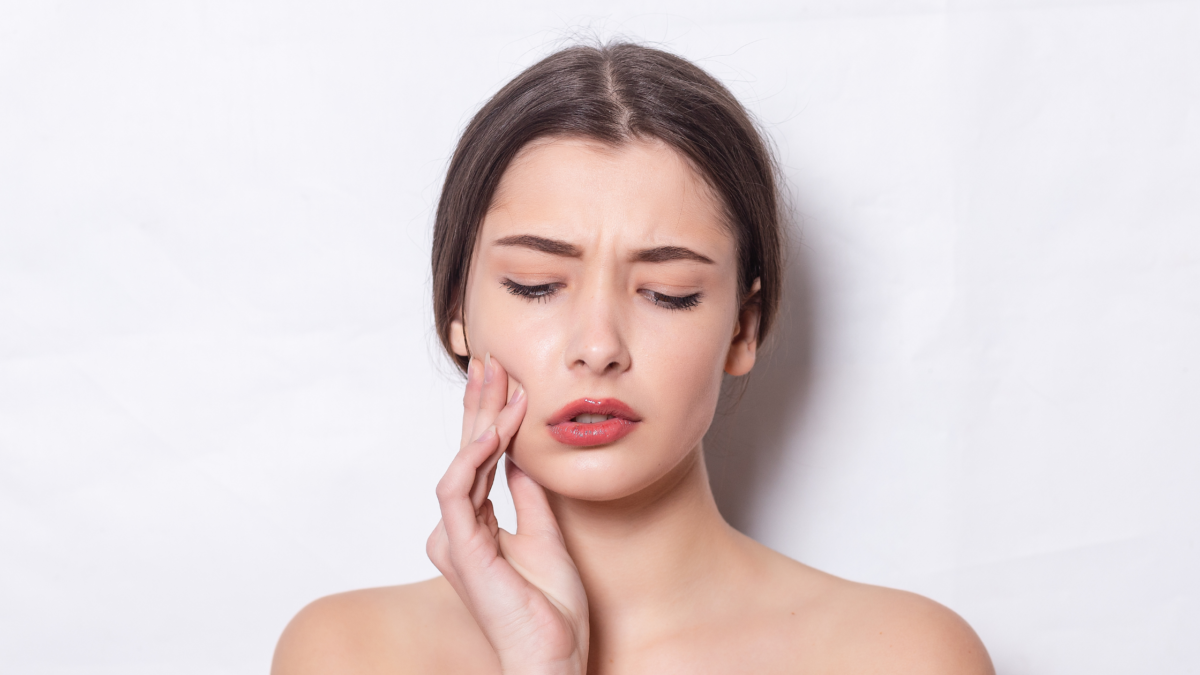
Stress. It’s that sneaky culprit that doesn’t just mess with your mood—it wreaks havoc on your skin, too. From dullness and breakouts to fine lines that seem to appear overnight, stressed skin is a real struggle. But here’s the good news: the right vitamins can help your skin bounce back, and I’ve got the top five must-haves to soothe stressed skin.
I’ve dug into the science, scoured web reviews, and compiled a listicle that’s easy to read and packed with practical tips. Whether you’re dealing with a hectic job, family chaos, or just life in general, these beauty vitamins will help your skin glow again. Let’s dive in!
How Stress Affects Your Skin
Stress isn’t just in your head—it shows up on your face. When you’re stressed, your body pumps out cortisol, the “stress hormone.” Cortisol messes with your skin in a few nasty ways:
- Increases Oil Production: Cortisol revs up your sebaceous glands, leading to clogged pores and breakouts.
- Weakens Skin Barrier: Stress slows collagen production and damages your skin’s protective layer, causing dryness and sensitivity.
- Spikes Inflammation: Chronic stress triggers inflammation, leading to redness, acne, or even eczema flare-ups.
- Accelerates Aging: Cortisol breaks down collagen and elastin, speeding up wrinkles and sagging.
Reviews across health blogs and user forums, like those on WebMD and Healthline, confirm that stress-related skin issues are common, especially during life’s busier seasons. The fix? A mix of stress management and targeted nutrients to repair and protect your skin. That’s where these five beauty vitamins come in.
Top 5 Beauty Vitamins for Stressed Skin
These five vitamins (and one bonus mineral!) are backed by science and praised in reviews for calming stressed skin. Each one tackles a specific stress-related skin issue, from inflammation to dullness.
1. Vitamin C: The Stress Buster for Your Skin
What It Does: Vitamin C is a superhero antioxidant that fights free radicals caused by stress, UV rays, and pollution. It boosts collagen production, brightens dull skin, and reduces redness. Studies, like one from the Journal of Clinical and Aesthetic Dermatology (2023), show topical and oral Vitamin C can reduce cortisol-induced skin damage. Why It’s Great for Stressed Skin: Stress depletes Vitamin C levels, leaving your skin vulnerable.
Replenishing it strengthens your skin barrier and fades stress-induced dark spots. Sources: Oranges, strawberries, bell peppers, kale, or supplements (500–1000 mg daily). Reviews: Users on Amazon rave about Vitamin C serums like CeraVe’s, saying their skin looks “brighter and less tired” after a week. Oral supplements, like Nature’s Bounty, get love for improving skin tone in a month. Tip: Pair with sunscreen for max protection—stress makes skin more sun-sensitive.
2. Vitamin E: Your Skin’s Antioxidant Defender
What It Does: Vitamin E neutralizes free radicals and protects skin cell membranes from stress-related damage. It’s a natural anti-inflammatory, soothing redness and irritation. Research from Dermatologic Therapy (2024) links Vitamin E to faster healing of stressed, dry skin. Why It’s Great for Stressed Skin: Stress weakens your skin’s lipid barrier, but Vitamin E reinforces it, locking in moisture and calming sensitivity.
Sources: Almonds, sunflower seeds, spinach, avocados, or supplements (15 mg daily). Reviews: Fans of The Ordinary’s Vitamin E serum on Sephora call it a “lifesaver” for dry, stressed skin, with noticeable softness in days. Oral Vitamin E capsules, like Solgar’s, are praised for reducing flaky patches. Tip: Combine with Vitamin C for a one-two antioxidant punch—studies show they work better together.
3. Vitamin B Complex: Reducing Skin Inflammation from Stress
What It Does: The B vitamins—especially B3 (niacinamide), B5 (pantothenic acid), and B6—calm inflammation, regulate oil production, and repair skin. A 2023 study in Nutrients found B vitamins reduce cortisol-driven redness and acne. Why It’s Great for Stressed Skin: Stress spikes inflammation and oil, leading to breakouts. B vitamins balance sebum and soothe angry skin. Sources: Whole grains, eggs, salmon, bananas, or B-complex supplements.
Reviews: Niacinamide serums, like Paula’s Choice 10% Niacinamide Booster, are a hit on Reddit’s SkincareAddiction, with users saying it “shrinks pores and calms redness” in two weeks. B-complex supplements from Thorne Research get high marks for clearing stress acne. Tip: Look for B5 in moisturizers for extra hydration—perfect for stress-dried skin.
4. Biotin: Rejuvenating Your Skin When Stress Takes a Toll
What It Does: Biotin (Vitamin B7) supports skin cell turnover and strengthens the skin barrier. It’s key for maintaining hydration and elasticity, which stress can zap. A 2024 review in Skin Pharmacology and Physiology links biotin to improved skin smoothness under stress.
Why It’s Great for Stressed Skin: Stress slows cell renewal, leaving skin dull and rough. Biotin speeds up repair and restores glow. Sources: Eggs, nuts, sweet potatoes, salmon, or supplements (30–100 mcg daily). Reviews: Biotin supplements, like Natrol’s 10,000 mcg, are Amazon bestsellers, with users reporting “smoother, less dull skin” after a month. Topical biotin creams are less common but praised in niche beauty blogs for hydration. Tip: Pair with a healthy diet—biotin works best with balanced fats and proteins.
5. Zinc: The Skin-Healing Mineral for Stress Relief
What It Does: Zinc, technically a mineral, regulates oil production, fights inflammation, and speeds wound healing (like acne scars). A 2023 study in Journal of Dermatology found zinc reduces stress-induced acne and redness.
Why It’s Great for Stressed Skin: Stress triggers breakouts and slows healing. Zinc calms skin and prevents scarring, keeping stress acne at bay. Sources: Pumpkin seeds, oysters, beef, chickpeas, or supplements (15–30 mg daily). Reviews: Zinc supplements, like Pure Encapsulations’ Zinc 30, are praised on iHerb for clearing “stress pimples” in weeks. Topical zinc in La Roche-Posay’s Effaclar Duo gets love for reducing acne redness overnight. Tip: Take with food to avoid nausea, and don’t overdo it—too much zinc can cause side effects.
How to Incorporate Beauty Vitamins for Stressed Skin
Getting these vitamins into your routine is easier than you think. Here’s how to do it effectively:
- Diet First: Load up on vitamin-rich foods like citrus fruits, nuts, leafy greens, and seafood. A balanced diet ensures you’re getting co-nutrients for better absorption.
- Supplements for Support: If your diet falls short or stress is intense, consider a multivitamin or targeted supplements. Reviews suggest brands like Thorne, Solgar, and Nature’s Bounty for quality.
- Topical Treatments: Serums or creams with Vitamin C, E, niacinamide, or zinc work directly on skin. Users love layering them under moisturizer for best results.
- Consistency Is Key: Vitamins take time—expect 4–8 weeks for noticeable changes. Stick with it, and pair with a gentle skincare routine.
- Check with a Doctor: High doses of supplements (like zinc or biotin) can interact with meds or cause side effects. Get personalized advice, especially if you’re pregnant or have health conditions.
Read: Anti-Ageing Vitamins for Women: Top 7 Vitamins You Need for Youthful Skin
Other Tips for Managing Stress and Skin Health
Vitamins are awesome, but they’re not the whole story. Here are extra ways to keep stress from ruining your skin, backed by user tips and expert advice:
- Sleep Well: Aim for 7–9 hours. Sleep lowers cortisol and gives skin time to repair. Reviewers swear by silk pillowcases to reduce irritation.
- Hydrate: Drink 8–10 glasses of water daily to flush toxins and keep skin plump. Users on X love adding lemon for a Vitamin C boost.
- Exercise: A 30-minute walk or yoga session reduces cortisol and boosts circulation, giving skin a glow. Fitness blogs highlight yoga’s skin benefits.
- Skincare Basics: Use a gentle cleanser, moisturizer, and SPF daily. Reviews on Dermstore praise CeraVe for stressed, sensitive skin.
- Manage Stress: Meditation, journaling, or deep breathing lowers cortisol. Apps like Calm get high ratings for quick stress relief.
Frequently Asked Questions
Q: Can I get enough of these vitamins from food alone?
A: Yes, a balanced diet with fruits, veggies, nuts, and lean proteins can cover your needs. Supplements are helpful if stress or diet gaps leave you deficient.
Q: How long until I see results?
A: Topical vitamins (like Vitamin C serums) can show results in 1–2 weeks. Oral supplements or dietary changes take 4–8 weeks for noticeable skin improvements.
Q: Are there risks to taking these vitamins?
A: Overdosing on supplements (like zinc or Vitamin E) can cause nausea or skin irritation. Stick to recommended doses and consult a doctor.
Q: Can these vitamins help with acne?
A: Absolutely! Zinc, B vitamins, and Vitamin C reduce inflammation and oil, tackling stress-related acne. Reviews confirm their effectiveness for breakouts.
Final Thoughts for You
Stressed skin doesn’t have to be your reality. These five beauty vitamins—Vitamin C, Vitamin E, B Complex, Biotin, and Zinc—are like a rescue team for your face, fighting inflammation, repairing damage, and restoring your glow. Pair them with a solid diet, simple skincare, and stress-busting habits, and you’ll be amazed at the results.
I’ve seen countless reviews from real people who’ve transformed their skin with these nutrients, and the science backs it up. Start small, stay consistent, and let your skin shine!

